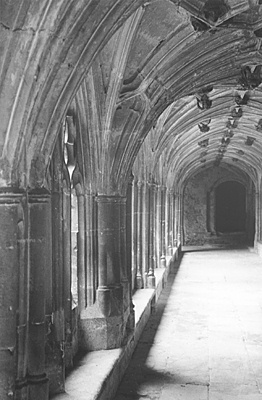All Nonfiction
- Bullying
- Books
- Academic
- Author Interviews
- Celebrity interviews
- College Articles
- College Essays
- Educator of the Year
- Heroes
- Interviews
- Memoir
- Personal Experience
- Sports
- Travel & Culture
All Opinions
- Bullying
- Current Events / Politics
- Discrimination
- Drugs / Alcohol / Smoking
- Entertainment / Celebrities
- Environment
- Love / Relationships
- Movies / Music / TV
- Pop Culture / Trends
- School / College
- Social Issues / Civics
- Spirituality / Religion
- Sports / Hobbies
All Hot Topics
- Bullying
- Community Service
- Environment
- Health
- Letters to the Editor
- Pride & Prejudice
- What Matters
- Back
Summer Guide
- Program Links
- Program Reviews
- Back
College Guide
- College Links
- College Reviews
- College Essays
- College Articles
- Back
Hamlet: Honor, Religion, Role of Women
In the five acts that comprise Hamlet, Shakespeare probes the concepts of honor, religion, and the role of women in the context of seventeenth-century Europe. Through the character Hamlet, Shakespeare forges a paradox between honor and revenge. Hamlet seeks revenge on his uncle for the sake of honor, yet refrains from murdering his uncle in fear of violating his religious values. Through Hamlet's lover Ophelia, Shakespeare speaks volumes of the status of women in society and the social prejudices exerted on them during the seventeenth century.
Having obtained the information from the ghost of his father that Claudius murdered him, Hamlet promises to avenge his uncle. The death of Claudius would bring the late King Hamlet honor, yet despite multiple opportunities, Hamlet's fear of violating his religious values restrains him from committing murder. The opportunity for revenge presents itself when Hamlet sees Claudius alone. Hamlet draws out his sword, yet his fear of staining his honor intrudes his mind. Claudius is praying, and therefore if Hamlet kills him then, "he goes to heaven." It would be unethical to "do this same villain sent to heaven". This would be "hired and salary, not revenge", as Claudius "took my father grossly, full of bread", with all his sins in blossom and no time for repentance. Realizing the prospect of Claudius going to heaven, Hamlet becomes hesitant, swinging between murdering Claudius for the achievement of honor and waiting for a more appropriate opportunity for adherence to religious values. Murdering Claudius at the moment the king is praying fails to reconcile with Hamlet's inner religious values. The subsequent plot portrays Hamlet's attempt to reconcile his desire for honor and desire to adhere to religious values. To justify his murder, Hamlet establishes an opportunity to test whether Claudius has murdered the late King Hamlet. He devises a script that runs parallel to the alleged murder of King Hamlet. He orders the theatre to perform the script and tells Horatio to "give him [Claudius] heedful note... and afterward, we will both join in censure of his seeming". The revenge on Claudius was thus further delayed, interrupted by the performance, the need for justifying revenge.
During the continuous effort to reconcile two opposing values, Hamlet encountered Ophelia. Ophelia's role and fate in the play reflect the role of women in seventeenth-century Europe. Fearing that her daughter's relationship with Hamlet would "tender me [Polonius] a fool," Polonius forces Ophelia to return all of Hamlet's letters and commands her to cease conversations with him. She is to "be somewhat scanter of your maiden presence", and "do not believe his vow (1.3)." Ophelia obeys. She continues to utter no rejection even when she was used as a pawn between men. When Polonius wanted to discover whether Hamlet's grief is connected to Ophelia's indifference to his affection, he instructed Ophelia to be present when Hamlet arrives, "pretend to "read on this book, that shows such an exercise may color Your loneliness." Ophelia obeyed (3.1). Her obedience exemplifies the expected behavior of a daughter -- gentle, respectful, subservient. However, behind the obedience Ophelia demonstrates is the subjection to the dominance of a patriarchal society and the pressure of feminine expectations. In a male-dominated society, Ophelia is dependent on Polonius, Laertes, and Hamlet for sociopolitical protection. After the death of Polonius, Ophelia loses her last source of protection. With Laertes away in France and Hamlet showing no affection to her, Ophelia now has her fate in her own hands. Recognizing the impossibility to survive, Ophelia falls into insanity. Yet even when she is insane, she retains feminine behaviors, passing invisible flowers to Claudius, Gertrude, and others. Passing flowers is an act of the sweetness of womanhood. Ophelia retaining her behavior suggests male oppression in the seventeenth century -- Ophelia was forced to perform to a frequency that she retains those memories even when she is insane.
Through depicting the trajectories of Hamlet and Ophelia, Hamlet portrays a paradoxical connection between the pursuit of honor and adherence to religious values. It also speaks about the role of women in a patriarchal society. Ultimately, what distinguishes Hamlet is the complexity of its characters and the paradoxes that exist within each. Hamlet desires honor, and yet is refrained from murdering fear of violating his religious values. Ophelia presents the image of a perfect; however, she is the victim of a patriarchal society and is driven to insanity by male oppression.

Similar Articles
JOIN THE DISCUSSION
This article has 0 comments.

Some spoilers may be present. A couple of months ago, I went on a bit of a classic kick. Hamlet was one of the books I read and enjoyed.